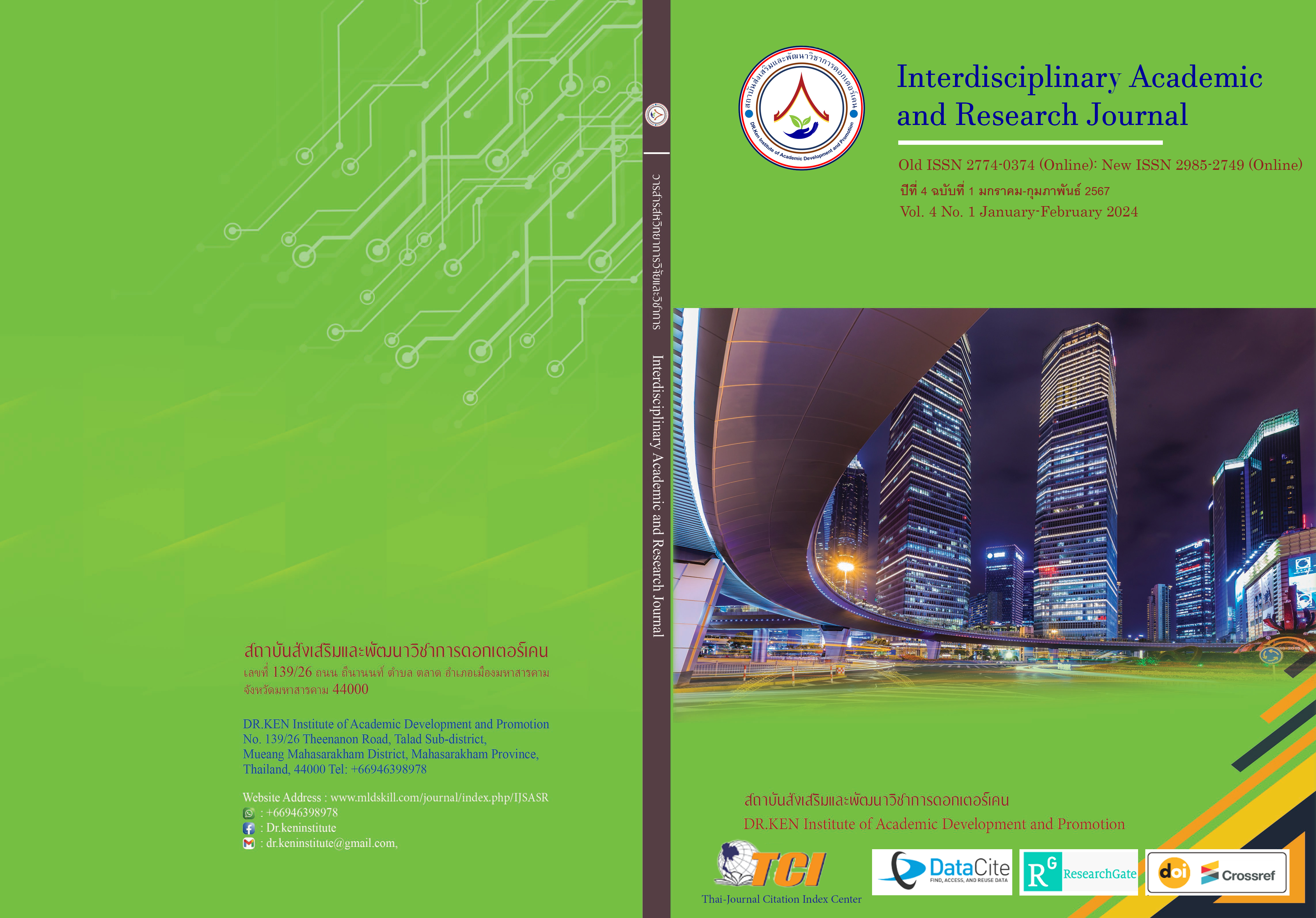Legal Problems on the Scope of Liabilities of Airlines in Case of Flight Cancellation Due to Destination Countries Ban Flights or Outbreak
DOI:
https://doi.org/10.60027/iarj.2024.272392Keywords:
Delayed; , Force Majeure; , Airline LiabilityAbstract
Background and Aims: The airline's inability to travel as scheduled due to the destination country announcing a ban on flights into that country will be considered a case of delay, which will cause the airline to be liable or not because the passenger is unable to travel according to the schedule announced by the airline. This article aims to study the extent of air carriers' liability in the case of flight cancellations due to the destination country being closed or flight cancellations due to an epidemic.
Methodology: This study analyzes and compares legal issues regarding the scope of liability of air carriers in the case of flight cancellations due to the destination country being closed or flight cancellations due to an epidemic. To recommend and draft legal provisions related to the scope of liability of air carriers and passenger protection in the case of flight cancellation due to the destination country being closed or flight cancellation due to an epidemic.
Results: The results of the study found that A force majeure event must be an event that occurs and is an event that cannot be prevented by the person who is about to face the said problem. If considering the matter of airlines that must operate flights the destination country has announced a ban on flights into the country. Such cases may also be considered force majeure. Because this is not the case the airline as the carrier will be able to take preventive measures. However, flights were canceled due to the destination country announcing a national lockdown. leaving passengers stranded at the airport the airline must assist the passengers. According to European Union Regulation No. 261/2004. The researcher therefore proposes to provide an exemption from liability for air carriers in cases where the destination country announces a national lockdown as a force majeure event in which the airline is not liable for damages resulting from the inability to carry out transport operations. However, the air carrier is required to still have a duty to care for passengers as necessary throughout the period that the passengers remain stranded at the airport or in the country of origin as necessary and appropriate.
Conclusion: The study emphasizes the importance of excluding force majeure in observing airlines that have been canceled or banned from entering the country, and stipulates the liability of the air carrier in cases where the incident occurred in cases where the airline could not have prevented it. However, airlines are liable for the care of passengers stranded at the airport according to EU Regulation 261/2004. Planning and compliance with these regulations are essential in providing services and support to passengers in emergency and unexpected situations to ensure sustainable aviation industry standards and passenger safety in all situations.
References
ไผทชิต เอกจริยกร. (2560). คำอธิบายกฎหมายรับขนทางอากาศ. กรุงเทพฯ : โรงพิมพ์เดือนตุลา.
ไพจิตร ปุญุญพันธุ์. (2558). คำอธิบายประมวลกฎหมายแพ่งและพาณิชย์ ลักษณะละเมิด. พิมพ์ครั้งที่ 14. กรุงเทพฯ : นิติบรรณการ.
จิ๊ด เศรษฐบุตร. (2556). หลักกฎหมายแพ่ง ลักษณะละเมิด. พิมพ์ครั้งที่ 4. กรุงเทพฯ : โครงการตำราและเอกสารประกอบการสอน คณะนิติศาสตร์ มหาวิทยาลัยธรรมศาสตร์
ทศพร ลีพึ่งธรรม. (2555). อุบัติเหตุที่ทำให้สายการบินต้องรับผิดต่อผู้โดยสารในกรณีตายหรือบาดเจ็บ. วารสารศาลทรัพย์สินทางปัญญาและการค้าระหว่างประเทศ, 442-451.
ประเสริฐ ป้อมป้องศึก. (2545). ความรู้ทั่วไปเกี่ยวกับกฎหมายอากาศระหว่างประเทศ. กรุงเทพฯ : สำนักพิมพ์วิญญูชน จํากัด
ศิริศักดิ์ ติยะพรรณ. (2545). ความรับผิดชอบของผู้ประกอบการสายการบินขนส่งต่อผู้ใช้บริการ. วารสารอัยการ, (4 กนัยายน 2545), 20.
สุษม ศภุนิตย์, (2555). คำอธิบายกฎหมายละเมิด. พิมพ์ครั้งที่ 8. กรุงเทพฯ : สำนักพิมพ์วิญญูชน จํากัด
Abeyratne, R.I.R. (2001). Aviation Trends in the New Millennium. England: Routledge. https://doi.org/10.4324/9781315261805
Beale, J.H. (1909). The History of the Carrier’s Liability. Boston: Little Brown and Company.
Polkowska, M. (2010). Some Observations on Civil Air Carrier Liability in International Air Carriage – “Accident”, “Damage” and “Jurisdiction”. Uniform Law Review, 15 (1), 109–131. https://doi.org/10.1093/ulr/15.1.109
Verschoor, D. (1985). An Introduction to Air Law. Netherlands: Kluwer Law and Taxation Publishers.
Downloads
Published
How to Cite
Issue
Section
License
Copyright (c) 2024 Chatchai Kankwamdee, Siggawat Kringsantie

This work is licensed under a Creative Commons Attribution-NonCommercial-NoDerivatives 4.0 International License.
Copyright on any article in the Interdisciplinary Academic and Research Journal is retained by the author(s) under the under the Creative Commons Attribution-NonCommercial-NoDerivatives 4.0 International License. Permission to use text, content, images, etc. of publication. Any user to read, download, copy, distribute, print, search, or link to the full texts of articles, crawl them for indexing, pass them as data to software, or use them for any other lawful purpose. But do not use it for commercial use or with the intent to benefit any business.
















.png)


